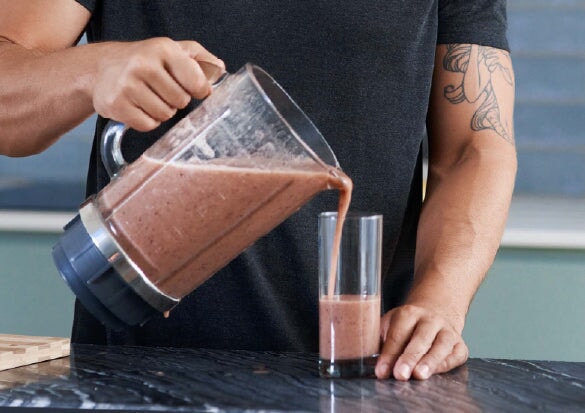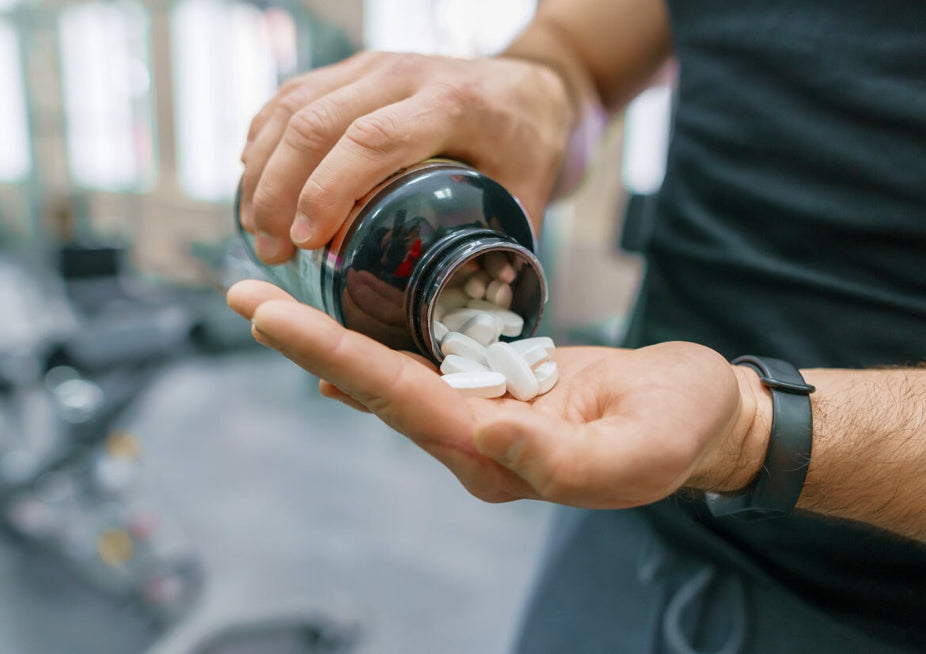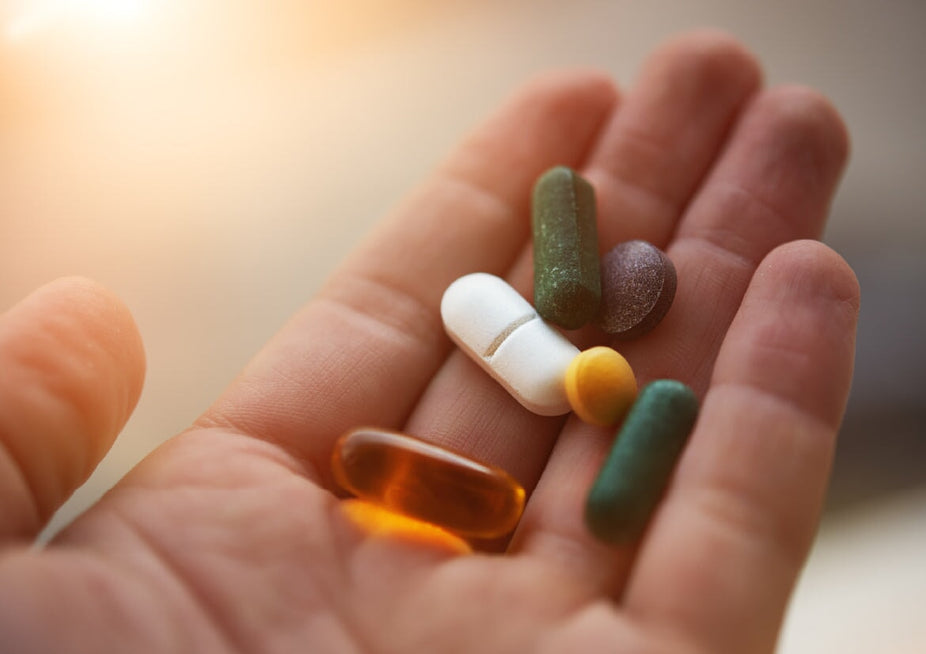The importance of blood testing for bodybuilders
Blood testing can take the guesswork out and support you in your goals to better your physique and training, but how?
Bodybuilding is no mean feat. If you’re striving for a bigger, more efficient body, it can take a long time to see the benefits of your devotion and dedication. Knowing whether you are doing the right thing can seem like a minefield, but did you know blood testing can help take some of the guesswork out?
When training, your inner health is just as important (if not more so) as your physical health. No matter how hard you work to reach your goals, if your hormones are out of balance or you’re overtraining, you won’t be able to perform at your best.
In this blog, we discuss:
- Are your hormones affecting your performance?
- Are you recovering properly after training?
- Is your diet providing the necessary nutrients for energy and optimal performance?
- Is your physical progress enough to keep you motivated?
- Why is blood testing beneficial for bodybuilders?
Are your hormones affecting your performance?
Hormones in the body play a critical role in strength training. Hormones can be split into anabolic and catabolic hormones. Anabolic hormones are any hormones that stimulate growth.
Anabolic hormones include:
- Testosterone
- Growth Hormone
- Insulin
For men, testosterone is a hormonal driver of muscle growth and is responsible for the development of:
- Male physical characteristics
- Muscle mass
- Strength
- Fat distribution
How does the menstrual cycle affect your training?
For women, oestrogen and growth hormone seem to be the drivers of muscle growth, as female testosterone concentration is 10-20% less than in males [1]. For women, a balance of hormones may be the key when building muscle. And some research seems to suggest adapting your training to where you are in your cycle can help with muscle growth.
The graph below shows how different stages of your cycle can affect your performance.

Catabolic hormones, however, do the opposite of anabolic hormones.
Catabolic hormones such as cortisol (the stress hormone) can:
- Break down muscle
- Suppress the immune system
- Enhance fat storage (at the expense of protein and muscle)
Knowing that both catabolic and anabolic hormones can either optimise or negatively impact your training, it is important to know that you can use blood testing to monitor them. You can read more about catabolic and anabolic hormones and their importance in recovery in our signs you’re overtraining and how to recover blog.
The best way to check up on your hormone levels and see whether an imbalance could be affecting your performance is through a blood test, such as our Ultimate Performance Blood Test. You can check up on hormone levels and nutrition to ensure you’re in the best physical shape for training.
Read more about our other sports-related tests in our Sports Performance Buying Guide, or why not try our test finder?
Are you recovering properly after training or are you overdoing it?
Training hard puts the body under a lot of stress and it’s very important to give your body enough time to recover and rebuild. Overtraining is a real risk for bodybuilders and passion and commitment to training may sometimes be the thing that prevents progress.
There is a fine balance between training optimally and overtraining (which can hamper your muscle gain). It may even lead to burnout which could prevent you from training altogether.
In between bouts of intense training, it is important to give you and your body time to rest and build – this includes during your workouts too e.g., ensuring you have at least a 30-90 second rest time when strength training [2].
Allowing adequate time to ensure muscle recovery is vital in reducing your risk of burnout and overtraining.
Is your diet providing the necessary nutrients for energy and optimal performance?
Alongside training, nutrition is the most crucial component to optimise your performance.
Nutrition is a key component of fat loss and muscle building. Many people who train monitor their diet closely and sometimes restrict their calorie intake to help improve their physique.
However, if not done correctly, restricting foods (and calories) can lead to being deficient in important vitamins and minerals. Fuelling your body in the right way is vital in reaching optimum efficiency and performance.
Key vitamins and minerals to monitor in sports performance include [4]:
To help enhance performance, there are also certain foods, such as protein, that have been proven to help build and repair muscle.
Proteins are the building blocks for repairing muscle tissue and a high-protein diet is important in preserving muscle when training. Too much protein, however, can cause kidney damage and because of this, it is recommended to measure kidney function when increasing your protein intake.
Kidney function and markers for vitamin and mineral deficiency are all included in our Ultimate Performance Blood Test.
You can also read more about protein and other important macros and micros in our blog.
Is your physical progress enough to keep you motivated?
Self-monitoring your progress through real, meaningful data is a scientifically proven way to keep your momentum going [4].
Biomarkers are biological indicators that can reveal valuable information about your health and fitness. Many aspects of your progress may not be visible on the outside, so it is crucial to gather as much information as possible to create the bigger picture.
With blood testing, you can test at multiple time points throughout your training and track changes in your essential biomarkers over time. This allows you to watch your vital stats improve, which will give you a strong boost of motivation to carry on.
You can then rest with reassurance that you’re making the progress you need and reward your hard work as you reach each milestone.
Why is blood testing beneficial for bodybuilders?
Blood testing is a powerful tool that can give you a cut above the rest. It can provide answers to common training questions and give you the knowledge you need to improve performance and stay healthy at the same time.
To find the right sports performance test for you, read our Sports Performance Buying Guide, or try our test finder.
References
- Handelsman, D., Hirschberg, A. and Bermon, S., 2018. Circulating Testosterone as the Hormonal Basis of Sex Differences in Athletic Performance. Endocrine Reviews, 39(5), pp.803-829.
- de Salles, B., Simão, R., Miranda, F., da Silva Novaes, J., Lemos, A. and Willardson, J., 2009. Rest Interval between Sets in Strength Training. Sports Medicine, 39(9), pp.765-777.
- Lee, E., Fragala, M., Kavouras, S., Queen, R., Pryor, J. and Casa, D., 2017. Biomarkers in Sports and Exercise: Tracking Health, Performance, and Recovery in Athletes. Journal of Strength and Conditioning Research, 31(10), pp.2920-2937.
- van Achterberg, T., Huisman-de Waal, G., Ketelaar, N., Oostendorp, R., Jacobs, J. and Wollersheim, H., 2010. How to promote healthy behaviours in patients? An overview of evidence for behaviour change techniques. Health Promotion International, 26(2), pp.148-162.
Related tests
Are you looking to transform your body through diet and exercise and track your progress along the way?
Our Ultimate Blood Test is designed for those who want to take their health and fitness to the next level — whether you're an athlete, biohacker, or simply someone who's serious about...
- Results estimated in 3 working days
- 56 biomarkers
Venous collection
Select test







